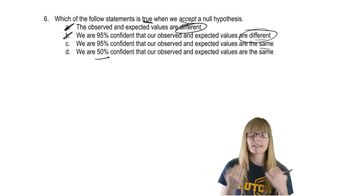- 1. Introduction to Genetics51m
- 2. Mendel's Laws of Inheritance3h 37m
- 3. Extensions to Mendelian Inheritance2h 41m
- 4. Genetic Mapping and Linkage2h 28m
- 5. Genetics of Bacteria and Viruses1h 21m
- 6. Chromosomal Variation1h 48m
- 7. DNA and Chromosome Structure56m
- 8. DNA Replication1h 10m
- 9. Mitosis and Meiosis1h 34m
- 10. Transcription1h 0m
- 11. Translation58m
- 12. Gene Regulation in Prokaryotes1h 19m
- 13. Gene Regulation in Eukaryotes44m
- 14. Genetic Control of Development44m
- 15. Genomes and Genomics1h 50m
- 16. Transposable Elements47m
- 17. Mutation, Repair, and Recombination1h 6m
- 18. Molecular Genetic Tools19m
- 19. Cancer Genetics29m
- 20. Quantitative Genetics1h 26m
- 21. Population Genetics50m
- 22. Evolutionary Genetics29m
During your work as a laboratory assistant in the research facilities of Dr. O. Sophila, a world-famous geneticist, you come across an unusual bottle of fruit flies. All the flies in the bottle appear normal when they are in an incubator set at 22°C. When they are moved to a 30°C incubator, however, a few of the flies slowly become paralyzed; and after about 20 to 30 minutes, they are unable to move. Returning the flies to 22°C restores their ability to move after about 30 to 45 minutes.
With Dr. Sophila's encouragement, you set up 10 individual crosses between single male and female flies that exhibit the unusual behavior. Among 812 progeny, 598 exhibit the unusual behavior and 214 do not. When you leave one of the test bottles in the 30°C incubator too long, you discover that more than 2 hours at high temperature kills the paralyzed flies. When you tell this to Dr. Sophila, he says, 'Aha! I know how to explain this condition.' What is his explanation?
 Verified Solution
Verified SolutionVideo transcript

 2:48m
2:48mWatch next
Master Chi Square Analysis with a bite sized video explanation from Kylia Goodner
Start learning








